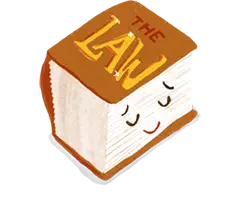Topic
Māori land
This page contains different parts of laws about Māori land, within the topic of Māori affairs.

Important laws about Māori land
Conservation Act 1987
Agreement to protect special land and its Maori values.
27A: Nga Whenua Rahui kawenata
Local Government (Rating) Act 2002
This law helps local councils do their job and explains how rates work so it's fair for everyone.
3: Purpose
Local Government (Rating) Act 2002
What's in the Local Government (Rating) Act 2002: a breakdown of its different parts
4: Outline
Local Government (Rating) Act 2002
You can ask the council to keep your name and address private on their rating records.
28C: Owner of rating unit and ratepayer for separate rating area entered on database may require local authority to withhold information from database
Local Government (Rating) Act 2002
Rule to help councils set up a database that is no longer needed
28D: Transitional provision for local authority to establish database
Local Government (Rating) Act 2002
What happens if your rates bill arrives late
49: Late delivery of rates invoice
Local Government (Rating) Act 2002
What happens when a charging order is made against your property for unpaid rates
66: Registration of charging order for judgment for rates
Local Government (Rating) Act 2002
Buying or leasing abandoned land is automatically considered legal
81: Presumption that sale or lease valid
Local Government (Rating) Act 2002
Officially recording certain documents with the authorities
83: Registration of instruments
Local Government (Rating) Act 2002
Māori freehold land owners pay rates just like other land owners.
91: Liability of Māori freehold land for rates
Local Government (Rating) Act 2002
Who pays rates for Māori land is recorded by the local council
92: Recording name of ratepayer
Local Government (Rating) Act 2002
Trustees of Māori land only pay rates from the land's income, not their own money.
93: Limitation on trustee liability
More laws about Māori land
About this project
What is this project?
This project is an experiment to take difficult language, and make it easier to read and understand for everyone.
How do we do this?
What's our process for taking the law and turning it into plain language?
Why is the law written like it is?
Laws are often hard to read. They use a lot of words and language we don't usually use when we talk.
Should we use AI for this?
What are the good and bad sides of using AI?
Is this information the actual law?
We hope that this information will help people understand New Zealand laws. But we think that it's important you talk to someone who understands the law well if you have questions or are worried about something.
You can talk to Community Law or Citizen's Advice Bureau about your rights.
Remember that AI can make mistakes, and just reading the law isn't enough to understand how it could be used in court.
You can talk to Community Law or Citizen's Advice Bureau about your rights.
Remember that AI can make mistakes, and just reading the law isn't enough to understand how it could be used in court.




